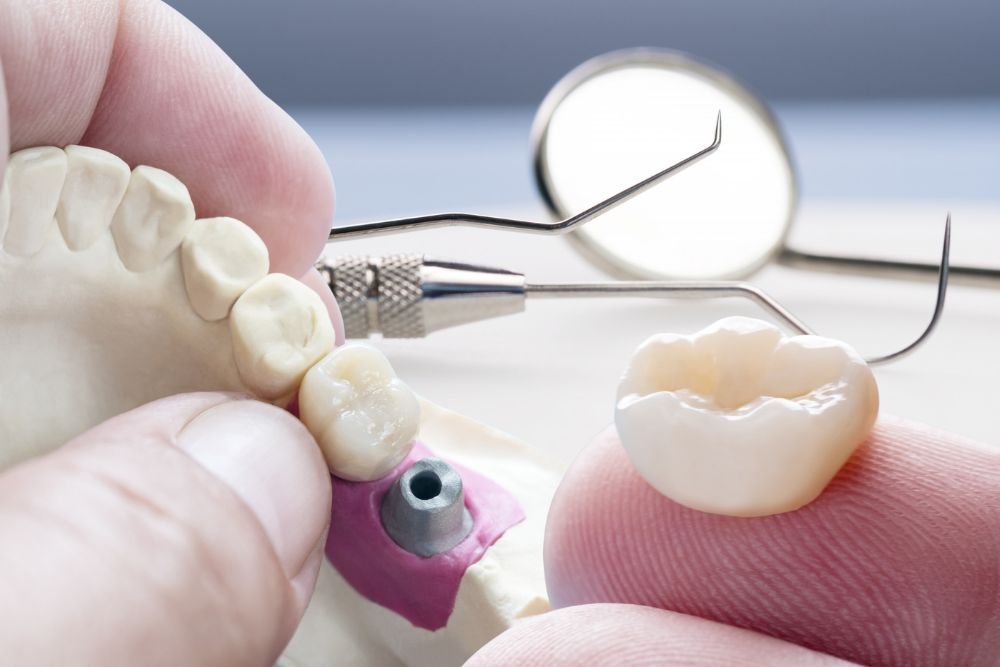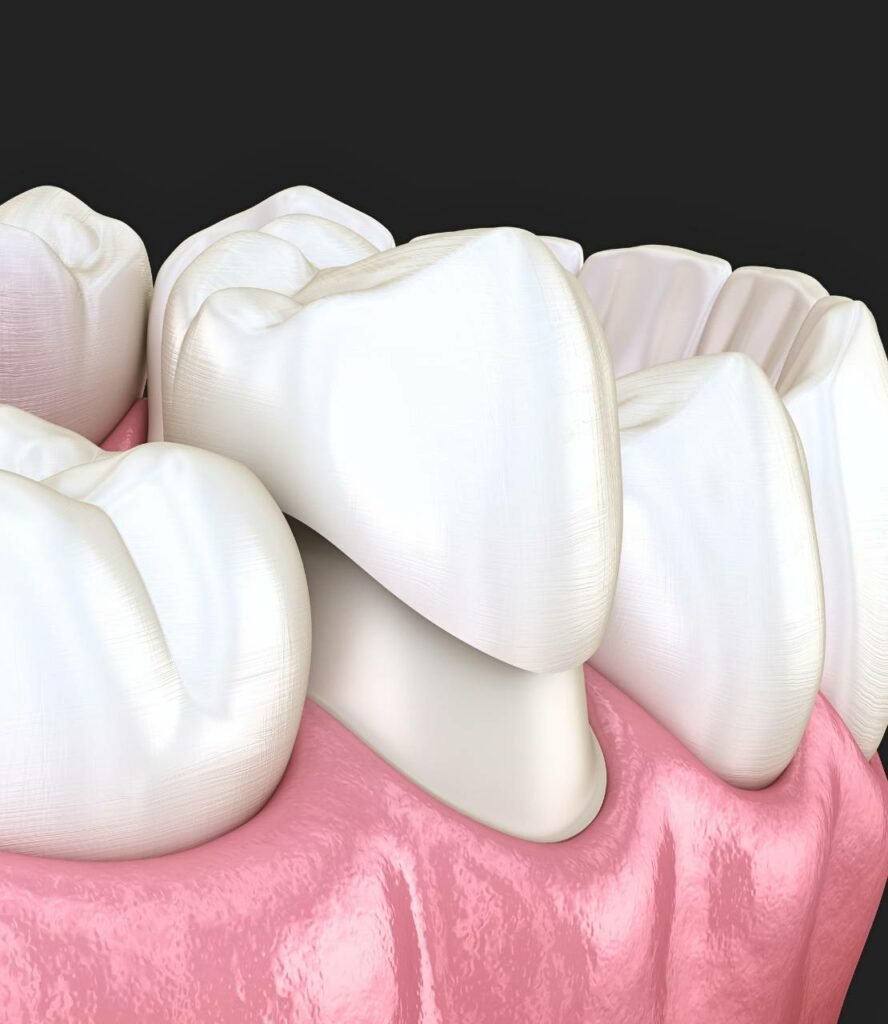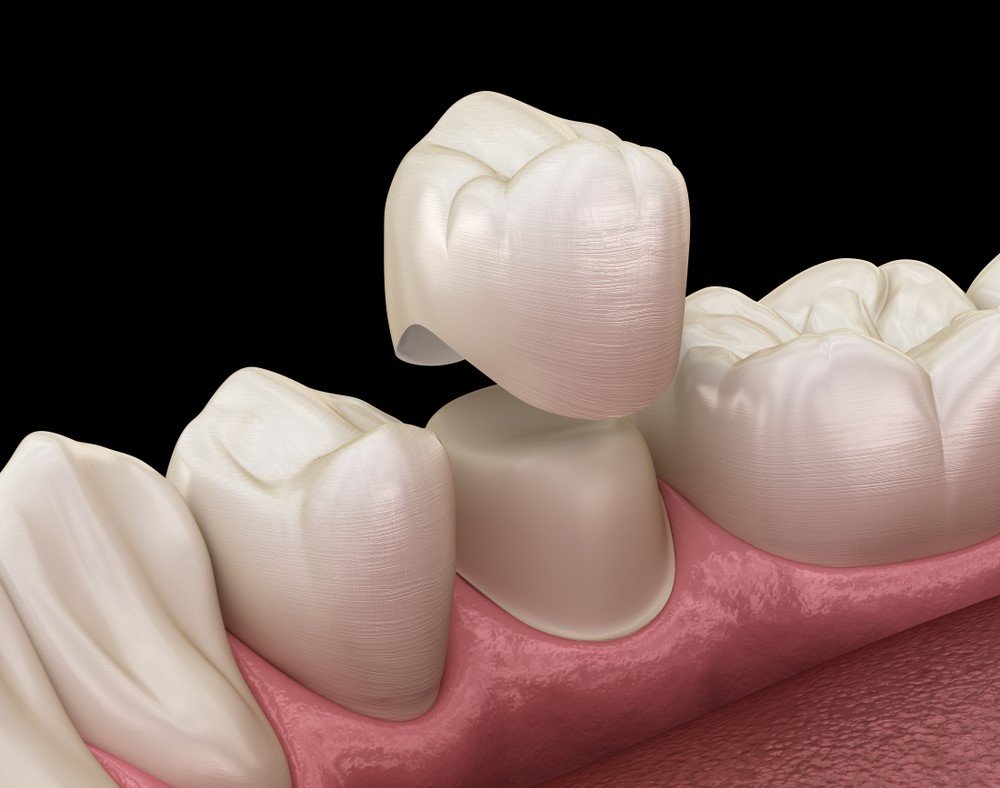A dental crown is a type of dental restoration that completely caps or encircles a tooth or dental implant. Crowns are often needed when a large cavity threatens the ongoing health of a tooth. They are also used to improve the strength, shape, size, and appearance of a tooth. Dental crowns can be made from various materials, including porcelain, ceramic, metal alloys, composite resin, or a combination of materials. Each material has its benefits and is chosen based on the specific needs and location of the crown in the mouth.





